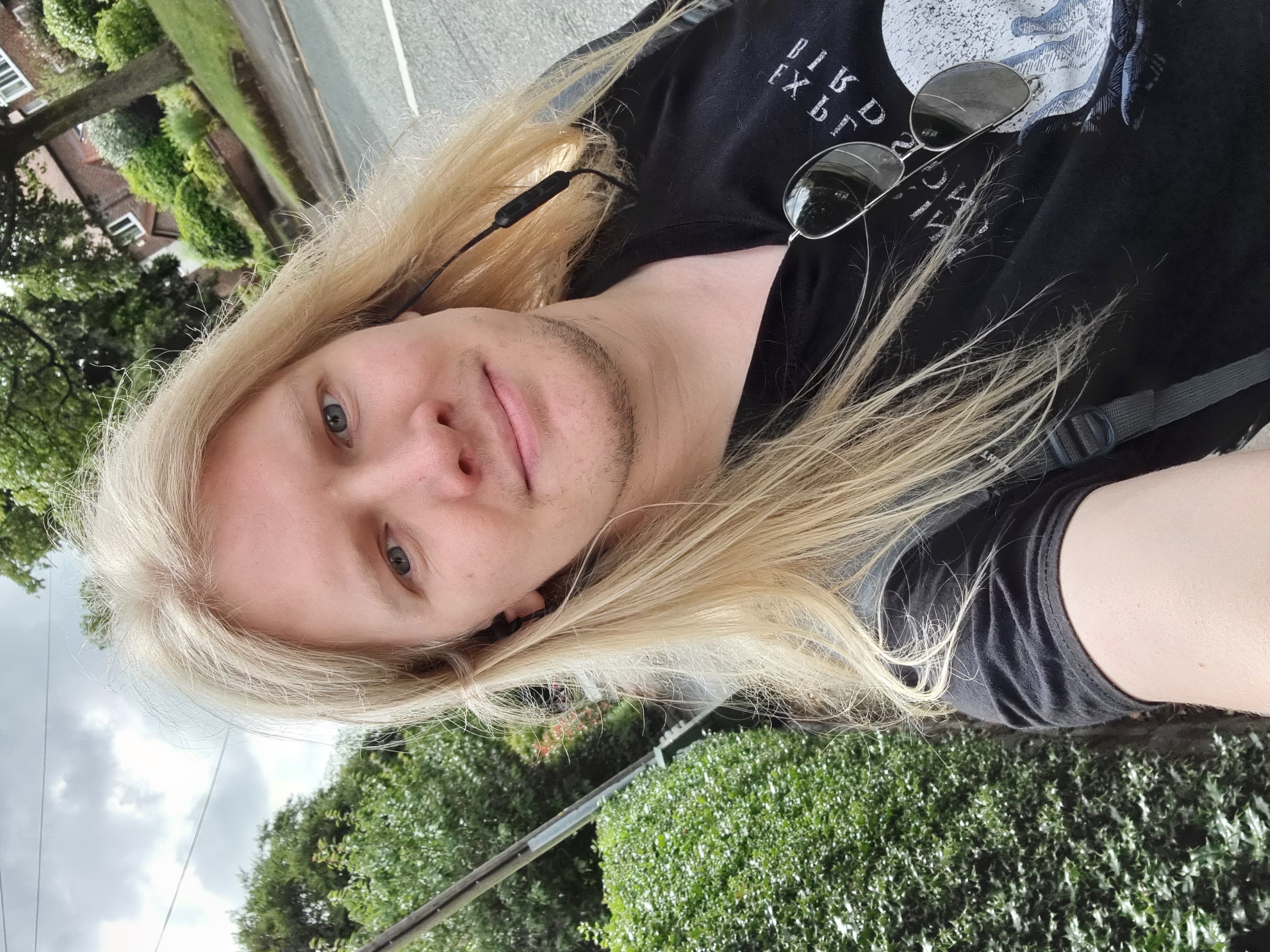Touring, fatherhood, more touring and near-catastrophic vocal problems; it felt like anything and everything was standing in the way of Protest The Hero completing work on their latest studio album, Palimpsest. In the wake of their serialised release Pacific Myth, its arguably misfiring predecessor, the band were determined to come back with a bang. None of their four virtuosic members, however, could have foreseen the bumps along the road that would stutter their progress time and time again. Life had given them lemons and they just had to suck them up.
“It feels like we’ve been sitting on this record for what feels like forever, so we’re just excited to finally be able vomit it out into this world,” laughs a typically high-spirited Rody Walker, the band’s vocal tour de force. He talks between reps of weights and apologises for his multi-tasking, as this is the only time of the day his young son seems to sleep, allowing him to do interviews. It was Walker, a new father, who inadvertently threw the biggest spanner into the works of the band’s latest effort back in 2018. With Protest The Hero touring the 10th anniversary of their career-crowning album Fortress, vocal issues began to flare up. Their persistence, ultimately, led to the cancellation of the rest of the tour and for the recording sessions, with only a small number of the vocals left to track, to be shelved. If the Canadian progressive metal act were going to make a triumphant return they were going to have to be patient.
“When my throat thing happened,” Walker explains, “I feared I’d have to sing the songs differently than I wanted to, which was something I was very hesitant to do.”
“We wanted results and it sucks to hit hurdles like that,” guitarist Tim Millar later returns. “But Rody didn’t want to phone in his performance. He was writing very challenging stuff that he knew he may not be able to do but he was adamant he didn’t want to change anything. He said he’d rather struggle to get there than change anything. It was hard to sit there and wait for that time to come, but the results are there to show it was worth the torture.”

The end result, the aptly titled Palimpsest, is an all-guns-blazing affair. It barks like Protest at their technical best and bites with a fresh pair of fangs, too. Standing proudly at the centre of the record is Walker’s impassioned, octave-transcending falsetto, sounding stronger than ever. There are moments when his range soars sky-high, pulsating with passion and verve. Yet there are others too, like the record’s second single, where he sounds evocatively tender.
“That pre-chorus at the end of From The Sky is my number one moment from the record,” Walker beams. A smile curls from his reddening face as he continues to pump weights in the early afternoon sun that dapples his Ontario home. “I was extremely trepidatious about recording that song because it’s pretty high and wide open; it had everything that was giving me trouble. I kept putting it off because I didn’t feel comfortable doing it. Then, when I finally got in the studio, the words just flew out of my mouth. It was a very anxious and happy moment for me. I fought for that one to be the second single because I wanted people to hear how happy I was with that.”
On this record, minor tweaks to the band’s sonic blueprint wield massive results. “We’ve really tried to think of dynamics a lot more,” says Millar. “We consciously tried to hold back in some parts where there were vocals and to try to make it more melodic. I feel there’s less of a battle between instruments and vocals, now they really complement each other.
“And this time all the orchestration was a big part of the writing and recording process. I feel it helps bring the music to life a little bit more, especially the parts we wanted to be really epic.”
Emboldened by those orchestral flourishes, despite the band having now added to their already crazily busy sound, Palimpsest is beautifully refined. Luscious, cinematic strings help plump up the size of the songs, providing both seismic crescendos and quirky diminuendos throughout. Yet somehow these extra layers have helped tidy up their arrangements and it’s the emphatic presence of those sweeping orchestral motifs that gives the record its defining fire.

Pacific Myth had seen the band trying to reinvent their album-releasing process by unleashing a new song each month via a paid subscription service. Palimpsest finds them returning to a more traditional release method. But, as is always the case with Protest The Hero, there’s a twist.
“In the UK and Europe, the record’s being put out through Spinefarm, but everywhere else it’s being released through Sheet Happens, the company founded by our guitarist Luke Hoskin. They produce guitar tablature books for bands. So we’re doing almost all of it through Luke and that’s exciting. Not only do we help our friend’s company grow, but we also get to be this weird little guinea pig in an experiment again.”
Says Millar, “I find with each release we become a more independent band. It’s nice to say at this point that we’ve got an established fanbase we can directly connect with. We’re going to help pack the pre-orders when they’re ready. We’re happy to take risks and try out new things and this is another example of us taking a calculated risk and trying something new.”
“Creativity should extend beyond just the music and that’s the way it’s been for us,” adds Walker. “Whether it’s with music videos or the way we release an album, and that’s fun to me. Thinking of different ways you can get the music out there is part of the creative process. You’ll never know what works if you never try.”
Of course such a bold step forwards for Sheet Happens wouldn’t be as steeped in risk if it weren’t for Protest The Hero’s powerfully polarising songs. But the Canadians are used to their music being received with both adoration and abhorrence.
“That’s what I love about our band, we’re seldom in that grey area; people either love us or they fucking hate us,” blurts Walker in a burst of laughter. “Music should always inspire passion in people, be it positive or negative.”
Palimpsest will arguably receive the same divisive response from listeners, but the strange thing is that the band’s biggest weakness is also their biggest strength. For those not put off by the supersonic vocals and light-speed guitar acrobatics, the record is a feast of virtuosic brilliance. Four years melt away as the string-lavished intro of Migrant Mother tears into life. Protest The Hero are back and more than making up for lost time with a record of boundless energy and feverish imagination. The road to this stage has been long, but fortune has favoured the brave and the patient here.
“This has been the longest and most difficult record to produce in my career and I couldn’t be happier with how it’s come out,” Walker says. He puts down his weights with a sigh of relief. “It’s been a long time since I’ve felt this happy about music I’ve written.”
“I’m really glad that we didn’t cut any corners with this record,” echoes Millar. “This time around, all the pain and torture that went into this record was worth it. Now we can’t wait to hear people’s reaction to it.”
This article originally appeared in issue 113 of Prog Magazine.

